![The Roles & Responsibilities of Database Administrators: A Complete Guide [2025] 1 Post thumbnail](https://www.guvi.in/blog/wp-content/uploads/2024/06/The-Role-of-Database-Administrators.webp)
The Roles & Responsibilities of Database Administrators: A Complete Guide [2025]
Mar 29, 2025 6 Min Read 5134 Views
(Last Updated)
Database administrators are some of the top IT professionals today and the salaries they command come at no surprise. The career outlook remains bright, with a projected 9 percent job growth between 2023 and 2033 that will create about 9,500 new positions annually.
Are you also wondering how you can make your career in this field but finding it a bit confusing?
Well just to start you off, database administrators now play a crucial role in organizations of all types. Their work spans across finance, healthcare, e-commerce, and education sectors. The job involves managing databases, tuning performance, implementing security measures, and maintaining data integrity.
And you can stop worrying because in this piece I will discuss everything about becoming a database administrator. You’ll learn the needed skills, certifications, job prospects and ways to grow in your career. Let’s get started.
Table of contents
- What is a Database Administrator?
- Key Responsibilities of a Database Administrator
- 1) Database Design & Configuration
- 2) Performance Monitoring & Optimization
- 3) Security and Access Control
- 4) Backup and Disaster Recovery
- 5) Database Troubleshooting
- 6) Automation and Scripting
- Essential Skills Required to Become a Database Administrator
- A) Technical skills
- B) Soft skills
- DBA Career Path, Job Roles and Salaries
- Top Certifications for DBAs in 2025
- Takeaways…
- FAQs
- Q1. What does the future hold for database administration?
- Q2. What are the primary responsibilities of a database administrator?
- Q3. What skills are essential for becoming a successful database administrator?
- Q4. Which certifications are most valuable for database administrators in 2025?
What is a Database Administrator?
A database administrator (DBA) acts as the technical guardian who maintains, secures, and operates an organization’s databases while ensuring proper data storage and retrieval. Unlike other IT roles that broadly focus on systems or networks, DBAs excel specifically in database environments. They become the subject matter experts for all related technologies and processes.
Database administration covers all functions needed to manage existing databases and create new ones based on organizational needs. DBAs take responsibility to understand and manage the entire database environment—from installation and configuration to maintenance and troubleshooting.
The role of database administrators has grown rapidly as businesses rely more on data. Most organizations use at least one Database Management System (DBMS), which has created a higher demand for qualified DBAs. Mission-critical workloads need dedicated database administrators to ensure applications have uninterrupted access to data.
The global need for database administrators keeps growing. The U.S. Bureau of Labor Statistics projects a 9% increase in employment opportunities for database administrators and architects through 2031. Organizations implementing cloud migration and digital transformation initiatives drive this growth.
Key Responsibilities of a Database Administrator
A database administrator’s professional life centers on six core responsibilities that keep data available, secure, and optimized. The DBA role demands both technical expertise and business acumen, which makes it challenging yet rewarding.
1) Database Design & Configuration
Database administrators act as architects who build database systems based on their organization’s needs. They create data models that match user requirements and support applications and infrastructure. A DBA must adopt the user’s viewpoint to design systems that work fast.
The design phase involves defining users and arranging data distribution so the right information reaches the right people in the right format. DBAs set up database policies, procedures, and standards that control database operations. This groundwork affects all other database functions and requires cooperation with application developers to ensure accurate, quick application design for database access.
2) Performance Monitoring & Optimization
A database administrator’s most vital task involves constant performance metric tracking to keep databases running at their best. DBAs monitor key indicators like response time, memory usage, CPU consumption, and query execution speeds to spot potential bottlenecks.
Performance monitoring helps administrators detect problems before users notice them. They adjust configurations, enhance queries, and fine-tune system settings to deliver quick responses. This hands-on approach reduces database downtime and ensures systems respond fast to user requests.
DBAs run tests and evaluations to verify that their optimization work produces expected results. They aim to maintain high availability while delivering steady performance across all database functions.
3) Security and Access Control
Protecting sensitive information stands as a basic DBA responsibility in today’s data-driven world. Database administrators put in place detailed security measures including access controls, encryption, and data masking techniques to protect information from unauthorized access or breaches.
They handle the complete user access lifecycle by granting permissions to authorized users, changing access levels as needed, and removing access when required. DBAs teach database users about security best practices and work with cybersecurity specialists on broader security projects.
4) Backup and Disaster Recovery
Since no database administrator can promise 100% uptime, creating resilient backup and disaster recovery strategies becomes crucial. DBAs design detailed recovery plans that set Recovery Time Objectives (RTO) and Recovery Point Objectives (RPO) based on how much data loss an organization can accept.
Database administrators perform regular backups and test recovery processes to ensure data restoration when needed. They set up high-speed transaction recovery techniques and failover mechanisms that limit business disruption during outages. Regular testing helps DBAs ensure backup integrity and verify recovery procedures work as planned.
5) Database Troubleshooting
Database problems require administrators to diagnose and fix issues fast to minimize downtime. This means finding the root cause through careful analysis and implementing solutions. DBAs break down complex issues like deadlocks, memory constraints, or query performance problems, then suggest fixes.
The troubleshooting process includes log analysis, query execution plan reviews, and system configuration checks to find performance bottlenecks. An exceptional database administrator’s ability to understand and fix problems under pressure sets them apart.
6) Automation and Scripting
Skilled DBAs use automation to handle routine maintenance tasks efficiently. They create scripts for backups, deployments, monitoring, and other repetitive processes to reduce manual work and minimize human error.
Automating standard procedures gives database administrators more time for strategic projects and complex problem-solving. This approach improves consistency in database operations and enables better management of potential issues through automated alert systems.
Essential Skills Required to Become a Database Administrator
A successful database administrator needs technical expertise and people skills. These abilities are the foundations of a thriving career in database management.
A) Technical skills
- Proficiency in SQL, MySQL, PostgreSQL, Oracle, and NoSQL Databases
A strong grasp of Structured Query Language (SQL) remains fundamental if you want to become a database administrator. Expertise in relational database management systems (RDBMS) like MySQL, PostgreSQL, and Oracle is essential for handling structured data efficiently.
However, with the rise of unstructured and semi-structured data, proficiency in NoSQL databases such as MongoDB, Cassandra, and DynamoDB is becoming increasingly important. DBAs must be capable of designing and optimizing databases based on specific workload requirements. Hence, make sure to master these basics if you wish to build a successful career.
- Experience with Cloud Platforms (AWS RDS, Azure SQL, Google Cloud Spanner)
Cloud adoption continues to rise, making cloud database management a core skill for DBAs. Leading cloud platforms like AWS RDS, Azure SQL Database, and Google Cloud Spanner provide scalable and managed database solutions that reduce on-premise infrastructure costs. DBAs must understand how to configure, optimize, and secure cloud-based databases while ensuring high availability and disaster recovery.
- Knowledge of Database Performance Tuning and Indexing Strategies
Optimizing database performance is one of the key responsibilities when you become a database administrator. This involves understanding query execution plans, indexing techniques (B-trees, hash indexes), and caching mechanisms to improve query efficiency. Performance tuning also requires monitoring database workloads, identifying bottlenecks, and implementing optimizations such as partitioning and sharding.
- Understanding of Backup and Recovery Strategies
Data loss can be catastrophic for any organization, making backup and recovery planning essential. DBAs should be proficient in implementing full, incremental, and differential backups while ensuring that recovery point objectives (RPO) and recovery time objectives (RTO) align with business needs. Familiarity with tools like Oracle RMAN, SQL Server Backup, and cloud-native backup solutions is highly valuable.
- Familiarity with Linux/Windows Administration
Since databases run on operating systems like Linux and Windows Server, DBAs should have a solid understanding of server configurations, shell scripting (Bash, PowerShell), user permissions, and network security. This knowledge helps in troubleshooting performance issues, automating database tasks, and securing database servers against cyber threats.
B) Soft skills
- Problem-Solving and Analytical Thinking
DBAs must be adept at troubleshooting database performance issues, resolving conflicts, and optimizing database efficiency. Analytical thinking is crucial for identifying patterns, diagnosing failures, and implementing effective solutions. Hence you must practice and master it.
- Communication and Collaboration
Since DBAs work with developers, data analysts, and IT teams, strong communication skills are necessary for them. They must be able to explain technical issues to non-technical stakeholders, document database architectures, and collaborate effectively across departments.
- Attention to Detail and Security Awareness
Database security is a top priority, given the increasing risks of cyberattacks and data breaches. DBAs should have a keen eye for detail to detect vulnerabilities, enforce security policies, and implement encryption methods to protect sensitive data so that they can be at the top of their game at all times.
DBA Career Path, Job Roles and Salaries
Database administration careers offer great growth potential. You can climb from entry-level jobs all the way to senior leadership roles. Most professionals begin their journey as junior database administrators and move up to mid-level positions with hands-on experience.
The typical career path looks like this:
1) Entry-Level DBA / Database Analyst – Freshers and early-career professionals start with roles such as Database Analyst, Junior DBA, or Database Developer. Responsibilities include basic database maintenance, running queries, data validation, and supporting senior DBAs.
Entry-Level DBA (0-2 years) Salary: ₹3.5 – ₹6 LPA
2) Database Administrator (Mid-Level) – After gaining 3-5 years of experience, professionals move into Database Administrator (DBA) roles, managing database security, backups, performance optimization, and troubleshooting. Certifications in Oracle, Microsoft SQL Server, or PostgreSQL can accelerate career growth.
Mid-Level DBA (3-6 years) Salary: ₹6 – ₹12 LPA
3) Senior Database Administrator – With 5-10 years of experience, DBAs take on Senior DBA roles, leading database teams, implementing high-availability solutions, and optimizing large-scale database infrastructures.
Senior DBA (7-12 years) Salary: ₹12 – ₹20 LPA
4) Database Architect / Database Engineer – As an expert in database design and scalability, a Database Architect focuses on developing database structures, improving query performance, and integrating databases with cloud services like AWS, Azure, or Google Cloud.
Lead DBA / Database Architect (12+ years) Salary: ₹20 – ₹35 LPA
5) Chief Data Officer (CDO) / IT Manager / Director of Data Services – At the highest level, DBAs can transition into leadership roles, managing data governance, enterprise-level database strategy, and compliance.
Chief Data Officer / IT Director Salary: ₹35+ LPA
Top Certifications for DBAs in 2025
Professional certifications are powerful credentials that confirm your expertise and boost your employability as a database administrator in today’s digital world.
Research shows that certified professionals get better treatment during hiring. These are the top certifications in the industry in 2025:
1) Microsoft Certified Azure Database Administrator Associate: This certification is a top credential to get in 2025. This certification shows you know how to manage cloud and hybrid database solutions built with SQL Server and Azure SQL services. It proves your skills in creating secure environments, watching performance metrics, and setting up disaster recovery solutions that ensure high availability.
2) Oracle Database Certifications: They still lead the industry standards. The Oracle Database 12c Administrator Certified Professional and Oracle Certified Expert, Oracle Exadata X5 Administrator are great picks for specialists. These credentials prove your mastery of Oracle’s enterprise-grade database systems.
3) MongoDB Certified DBA Associate: The MongoDB Certified DBA Associate certification shows you know how to deploy, maintain, and optimize NoSQL database environments. This credential matters more as companies adopt database architectures of all types.
Companies now value professionals who understand multiple databases more than ever. Getting certifications in different database platforms can maximize your career growth and earning potential.
Takeaways…
Well we can establish one thing from this discussion for sure and that is the fact that database administration is a rewarding career that offers growth opportunities in companies of all sizes. Your expertise will remain vital for organizations that want to succeed in a data-driven world, whether you manage on-premises databases or cloud solutions and this lays ground for a very promising career.
As we’ve discussed, a successful database administrator needs deep technical knowledge and problem-solving abilities. Certifications like Microsoft Azure Database Administrator Associate and Oracle Certified Professional will help verify your expertise.
As we conclude, I hope this article has aided your learning journey and if you have any doubts, reach out to me through the comments section below.
FAQs
The role of database administrators is evolving with technological advancements. While traditional DBA responsibilities may change, the demand for database expertise remains strong. Future DBAs will likely focus more on strategic data management, cloud solutions, and leveraging AI and automation to optimize database operations.
Database administrators are responsible for maintaining, securing, and operating databases. Their key duties include database design and configuration, performance monitoring and optimization, implementing security measures, managing backups and disaster recovery, troubleshooting issues, and automating routine tasks.
Successful database administrators need a combination of technical and soft skills. Essential technical skills include proficiency in SQL, knowledge of various database management systems, and programming abilities. Equally important are problem-solving skills, effective communication, and the ability to work well in a team environment.
Top certifications for database administrators in 2025 include Microsoft Certified: Azure Database Administrator Associate, Oracle Database certifications, MongoDB Certified DBA Associate, and AWS Certified Database – Specialty. These credentials validate expertise in specific database technologies and can significantly enhance career prospects and earning potential.















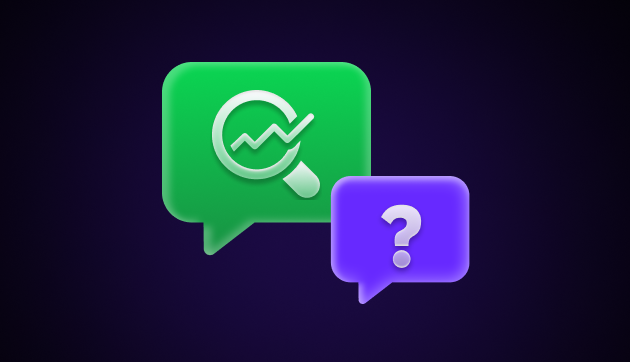
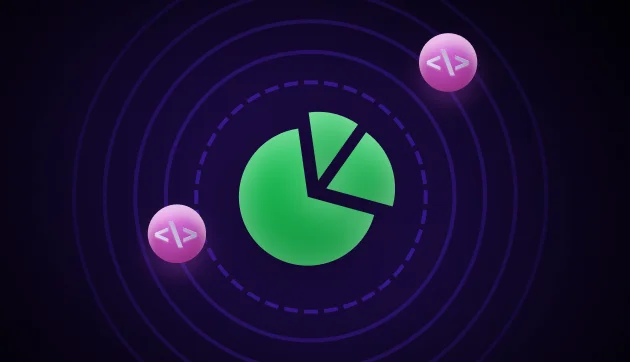


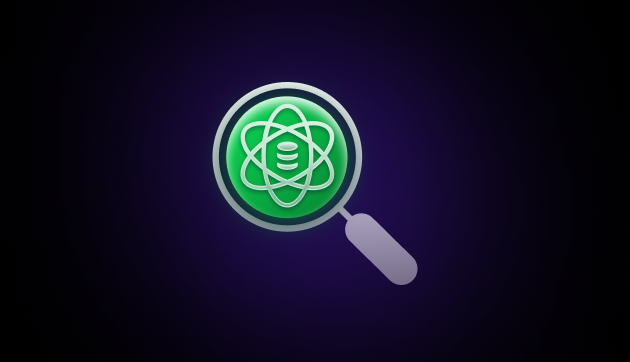


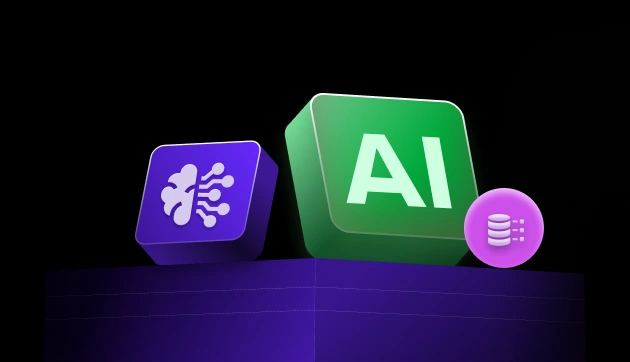
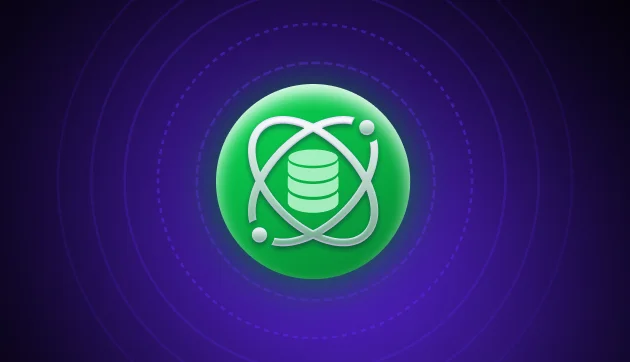

Did you enjoy this article?